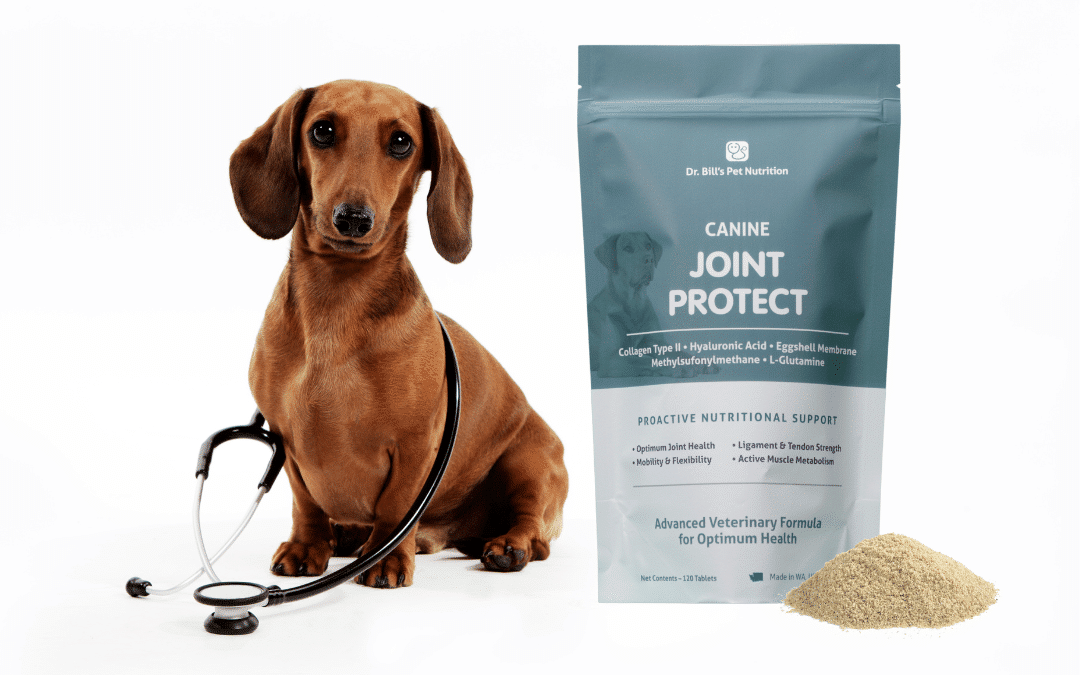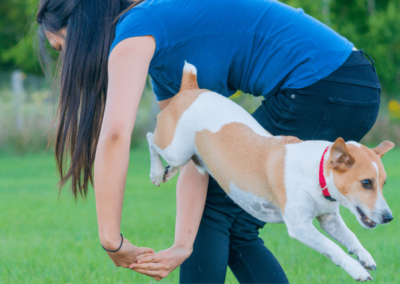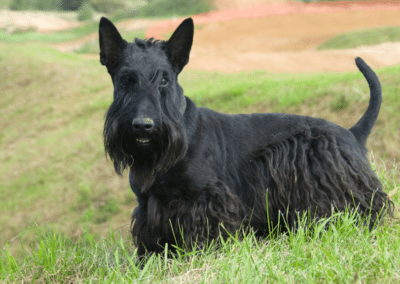While only 20% of all dogs develop joint issues before the age of one, an estimated 80% of dogs will succumb to debilitating joint pain by the age of eight. When a dog is having a difficult time accomplishing the tasks they used to enjoy, this is likely an early sign of canine joint pain. If this pain is left untreated, it can lead to significant health issues as your four-legged friend continues to age. Let’s explain common causes and symptoms of canine joint pain, and the best treatments available to ensure long-term optimum joint health.
Causes of Canine Joint Pain
There are two types of joint issues that cause recurring frequent pain in dogs, the first of which being degenerative joint pain. Degenerative joint issues develop over time as your dog wears down their cartilage or injures their tendons. Canine Cruciate Ligament (CCL) problems, or when tissues degenerate over time, are among the most common joint issues observed in dogs. Degenerative joint issues develop more frequently in large overweight dogs whose weight places added stress on their joints over time. If left untreated, degenerative joint pain can lead to further injuries, stress fractures, or osteoarthritis.
Developmental joint issues, on the other hand, are predisposed genetic health issues that are present in dogs from their birth. Certain breeds, such as the Newfoundlands and the Bernese Mountain Dogs, are more prone to develop improper joint alignment in their puppy years, which often leads to lifelong joint pain. Whether your dog is at risk of degenerative or developmental joint pain, there’s a beneficial and simple option available to ensure optimum joint protection.
Symptoms of Canine Joint Pain
If left untreated, canine joint issues tend to worsen over time. It’s always best to catch joint problems in their beginning stages so that your furry friend avoids the unnecessary symptoms of joint pain, which includes:
- Limping, stiffness, or slipping while walking.
- Loss of appetite.
- Irritability, depression, or lethargy.
- Licking or biting on the painful area.
As your dog ages, they’re much more likely to experience joint pain, so make sure to bring them to the vet as soon as possible if you notice any of these listed symptoms.
Treating Canine Joint Pain
What can you do as a dog owner to improve joint function, promote joint comfort, and prevent serious joint problems throughout your dog’s life? Some quick ways to promote joint care in your dog includes:
- Provide a bedding pad for them to sleep on. This is especially important for larger dogs and giant breeds.
- Provide your dog the opportunity to get plenty of exercise in order to maintain flexibility, mobility, and muscle strength which all assist in keeping joints stable.
- As our dogs age, we may need to assist them with stretching exercises or comforting massages.
- Support your dog’s joint health with collagen promoting supplements that helps maintain normal joint function and protects hip and joint health throughout their life.
Feeding the right amount of a biologically appropriate diet is the absolute best way to ensure that your dog stays protected from debilitating joint pain. Supplementing today’s canine diets with joint supporting nutrients has been proven to be highly beneficial to their longevity.
Dr. Bill’s Canine Joint Protect supplement is a highly palatable chewable tablet that has been formulated for use in large dog breeds, highly active breeds, performance dogs, or any dog that may be predisposed to an increased risk of injury, joint disease, arthritis, or hip dysplasia. Dr. Bill’s Canine Joint Protect provides proactive nutritional support for joint nourishment, improved joint function, mobility and flexibility, healthy cartilage production, added joint lubrication, and muscle ligament and tendon strength. Let’s protect our dogs from painful joint problems and help prevent debilitating arthritis later in life.








0 Comments